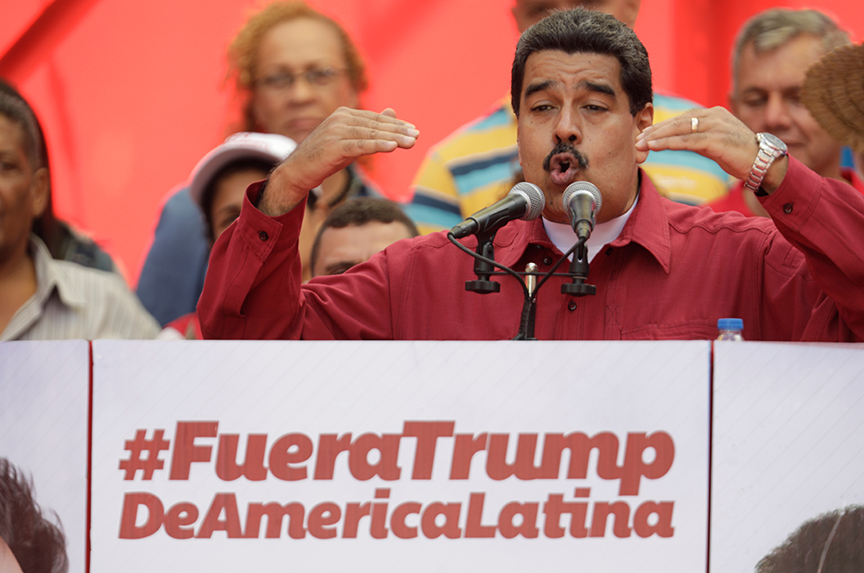
This article is part of a series that reflects on one year of the Trump administration.
The United States has ramped up sanctions on the Venezuelan regime, including Venezuelan President Nicolás Maduro.

What was US policy prior to Trump? Under former US President Barack Obama, the United States began implementing individual sanctions on several Venezuelan government officials to pressure President Nicolás Maduro to respect civil and political rights. These individual sanctions blocked property that was subject to US jurisdiction and did not target the Venezuelan economy or its people. As the situation in Venezuela deteriorated, the US Congress passed the Venezuela Defense of Human Rights and Civil Society Act of 2014, which encouraged the president to sanction individuals who had committed human rights violations. Obama then issued an Executive Order (EO 13692) in 2015, renewed in 2016, which adhered to and expanded on the congressional act. The executive order also declared a national emergency based on the threat the situation posed to the United States.
What has Trump said?
“The United States has taken important steps to hold the regime accountable. We are prepared to take further action if the government of Venezuela persists on its path to impose authoritarian rule on the Venezuelan people… I ask every country represented here today to be prepared to do more to address this very real crisis. We call for the full restoration of democracy and political freedoms in Venezuela. The problem in Venezuela is not that socialism has been poorly implemented, but that socialism has been faithfully implemented.”
— US President Donald J. Trump in remarks to the United Nations General Assembly on September 19, 2017.
What has changed? US President Donald J. Trump increased individual sanctions under EO 13692. As of January 4, 2018, the administration had sanctioned around forty-three individuals involved in activities such as the Venezuelan Supreme Court annulment of the opposition-led, democratically elected National Assembly. Other officials, such as Venezuelan Vice President Tareck El Aissami, were sanctioned by the US Department of Treasury’s Office of Foreign Assets Control (OFAC).
After Maduro held “illegitimate elections” in July, the United States took a significant step and sanctioned him, making him one of four heads of state under sanction. In August, Trump issued sanctions that prohibit dealings in new bonds from the Venezuelan government or its state-run oil company, Petroleos de Venezuela (PdVSA).
Under Trump, US economic sanctions have grown harsher, but have not turned to banning exports or imports. Importantly, the offhand comments Trump made in August regarding potential military action in Venezuela fed into Maduro’s anti-US narrative, although the Pentagon noted the comments were “baseless.”
Eleanor Jackson is an intern in the Atlantic Council’s Adrienne Arsht Latin America Center.
Image: Venezuelan President Nicolás Maduro gave a speech at a rally against US President Donald J. Trump in Caracas, Venezuela, on August 14, 2017. The sign reads: “Trump go away from Latin America.” (Reuters/Ueslei Marcelino)

